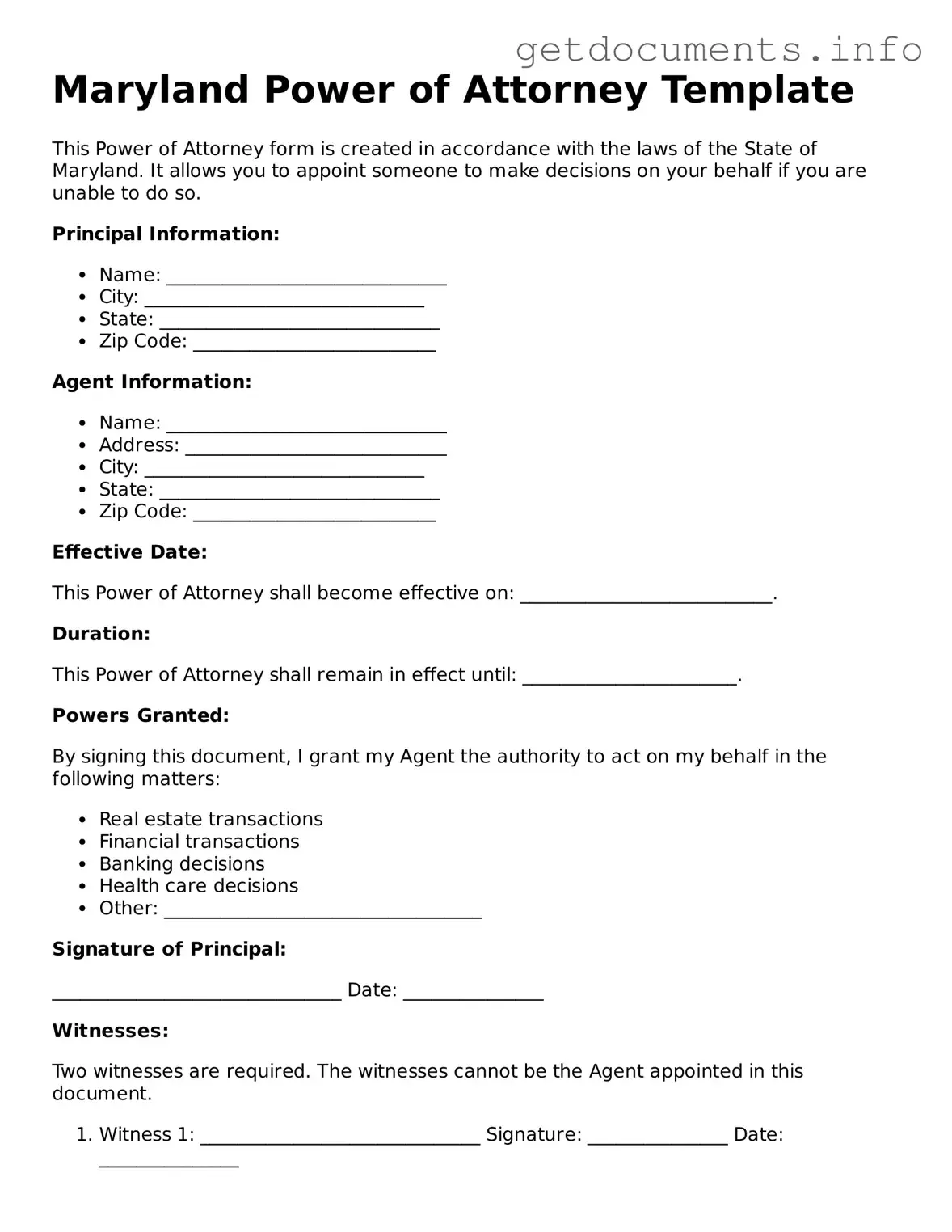Free Power of Attorney Template for Maryland
A Maryland Power of Attorney form is a legal document that allows an individual, known as the principal, to designate another person, called the agent, to make decisions on their behalf. This arrangement can be crucial for managing financial matters or healthcare decisions when the principal is unable to do so themselves. Understanding how to properly fill out this form is essential, so click the button below to get started.
Access Power of Attorney Editor

Free Power of Attorney Template for Maryland
Access Power of Attorney Editor
Got places to be? Complete the form fast
Fill out Power of Attorney online and avoid printing or scanning.
Access Power of Attorney Editor
or
⇩ PDF File
